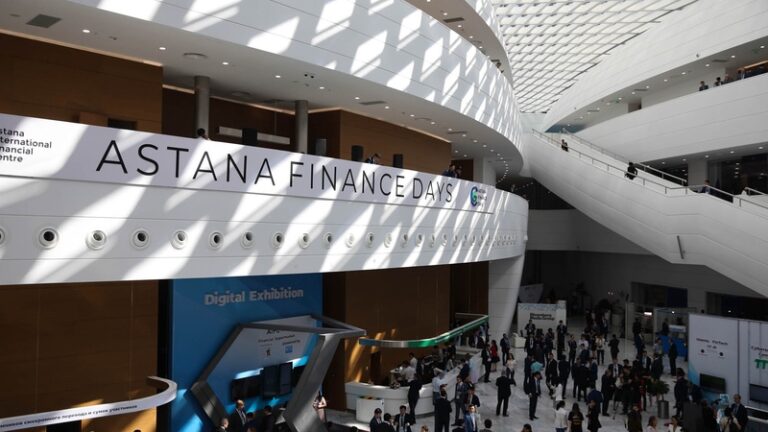Speech by Yuhong Wu, Vice Chairman of the Chengdu Bar Association, Representative Chendgu Bar Association (China) at the International Conference «Self-government of the Legal Profession: new challenges of our time» April 28, 2023.
As a result of globalization, legal services by foreign lawyers are becoming necessity and reality. Like other countries, China wants to do rights things to regulate and facilitate practice of foreign lawyer in China.
Since 1979, when Goudet Brothers established its representative office in China, the first representative office of foreign law firms in China, hundreds of foreign law firms have opened representative offices in China. With increase of the number of foreign law firms setting their foots in China, the Chinese regulatory regime of foreign lawyers practice has evolved to address the regulatory challenges.
The development of the Chinese regulatory regime of foreign lawyers practice can be divided into four stages.
The first stage is from 1979 to 1992. At that time, China just started its economic reformation with a legal system in the process of reformation and Chinese legal service market was at its inception. During this period, it is not surprising that there was no regulation on foreign lawyers practice in China. As foreign businesses came to China, foreign lawyers were brought into China through their client’s sponsorship and acted as in-house counsel of their client. Later, after the enactment of Law of the People’s Republic of China on Wholly Foreign-Owned Enterprises in 1986, foreign law firms started establishing legal consultant companies in China to provide legal consulting services to their clients, Chinese government departments and Chinese legal professionals. There were around 20 such legal consultant companies, all of which were established by US or UK firms and were located in either Beijing or Shanghai.
The second stage is from 1992 to 2000. Recognizing the importance of regulation on foreign lawyers practice in China, the Ministry of Justice, with the State Administration for Industry and Commerce, promulgated “Interim Provisions on the Establishment of Offices within the Territory of China by Foreign Law Firms” (the “Interim Provisions”). The Interim Provisions provided formal standard and procedures for the establishment of offices in China by foreign law firms, and prescribed the scope of practice, i.e. providing consultancy on Home Country [foreign] law, related international treaties, international commercial laws and international norms, rendering legal services regarding matters which are governed by Home Country [foreign] law, representing foreign clients and entrusting Chinese law firms to handle legal affairs within the territory of China, but prohibited foreign lawyers to practice on Chinese legal affairs and interpret Chinese laws. The Interim Provisions only allowed foreign law firms to open one office in China, and ban foreign law firms to provide legal services through consulting company and employ Chinese lawyers. During this period, there were over a hundred foreign law firms opening offices in China, locating in Beijing, Shanghai, Guangdong and other cities.
The third stage is from 2001 to 2012. To fulfill commitment to liberalize trade in services and reduce or eliminate existing limitations on market access or national treatment after China’s accession to WTO, the State Council promulgated “Administrative Regulations on the China-based Representative Offices of Foreign Law Firms” (the “Administrative Regulation”) in December 2001 and the Ministry of Justice issued “Provisions of the Ministry of Justice on the Implementation of the Administrative Regulations on the China-based Representative Offices of Foreign Law Firms” (the “Implementation Provisions”) in July 2002. The Administrative Regulation expanded the scope of practice (allowing foreign law firms’ Chinese representative office to keep long-term contractual entrustment relationship with Chinese law firms to handle legal affairs, and providing information on the impact of Chinese legal environment), lifted the restriction on the number of representative offices to allow multiple representative offices in China by a foreign law firm, and removed geographic restrictions. The Implementation Provisions further clarified ambiguous matters, such as approval standard, application materials, definition of «Chinese legal affairs», advertisement and marketing, etc. According to the Implementation Provisions, foreign lawyers are prohibited to practice «Chinese legal affairs», which include:
- to be engaged in any litigation in China as a lawyer;
- to give legal opinions or certifications for any specific issues in any contracts, agreements, articles of association, or other written documents with respect to application of Chinese law;
- to provide legal opinions or certifications for any acts or incidences with respect to application of Chinese law;
- to provide opinions in the capacity of representing attorney in arbitration on the application of the Chinese law;
- to represent clients for any registration, change, application, filing or other procedures with any Chinese government authorities or any other organizations that are authorized by laws or regulations to carry out administrative functions.
The Implementation Provisions made it clear that representative offices and foreign law firms may not: invest in any Chinese law firm, whether directly or indirectly; operate on an associated basis with any Chinese law firm or Chinese lawyer to share profits or risks; establish joint operation office with any Chinese law firm or dispatch lawyers to be engaged in legal services in any Chinese law firm; or manage, operate, control or own equity interests in any Chinese law firm.
During this period, the number of representative offices of foreign law firms has gradually increase to over 200, and most of representative offices located in Beijing, Shanghai, Guangdong.
The fourth stage is from 2013 to present. At this stage, as China has developed new economic initiatives, such as free trade zones and the belt and road initiative, to further open its market and facilitate the integration of the Chinese economy into the global economy, demand for cross-border legal practices grows. In response, Chinese government experimented with innovative regulation to explore methods and mechanisms for closer cooperation between Chinese law firms and foreign law firms.
In November 2014, in accordance with the Overall Plan for China (Shanghai) Pilot Free Trade Zone and the Ministry of Justice’s Approval of the Pilot Program for Exploring Methods and Mechanisms for Closer Cooperation between Chinese and Foreign Law Firms in the China (Shanghai) Pilot Free Trade Zone, the General Office of the Shanghai Municipal People’s Government promulgated the Implementing Measures for Mutual Assignment of Lawyers to Act as Legal Counsels by Chinese and Foreign Law Firms in the China (Shanghai) Pilot Free Trade Zone (“Mutual Assignment Measures”) and the Implementing Measures for Joint Operations between Chinese and Foreign Law Firms in the China (Shanghai) Pilot Free Trade Zone (“Joint Operation Measures”).
The Mutual Assignment Measures and the Joint Operation Measures carve out an exception to the Implementation Provisions that prohibits foreign law firms to establish joint operation office with any Chinese law firm or dispatch personnel to be engaged in legal services in any Chinese law firm, and to some extent address the issue of association of Chines and foreign law firms.
According to the Mutual Assignment Measures, a Chinese law firm may assign Chinese lawyers (no more than 3 lawyers) to the representative office of a foreign law firm in China to act as Chinese legal counsels while the foreign law firm may assign foreign lawyers (no more than 3 lawyers) to the Chinese law firm (or its branch) to act as foreign legal counsels, and the assigned legal counsels can, within their respective scope of practice and authority, cooperate with the lawyers of the host firm to provide legal services with a work mode of tasks division and collaboration.
According to the Joint Operation Measures, a Chinese law firm and a foreign law firm can enter into an agreement to establish a joint operation office in the Shanghai Free Trade Zone. Through the joint operation, with a work mode of tasks division and collaboration, the Chinse law firm and the foreign law firm can respectively provide their Chinese and foreign clients with legal services on matters which are governed by Chinese or/and foreign laws, or cooperate to represent clients on cross-border and international legal affairs. However, the two firms in joint operation remain independent of each other in terms of legal status, name and finance, and bear their civil liability independently. In some sense, a joint operation office can be deemed as a “quasi legal entity that conduct business and bill client under a single roof.
The Joint Operation Measures and the Mutual Assignment Measures can be considered a break-through, though a limited one. With mutual assignment or joint operation, it can be said that there is a limited association established between a foreign law firm and a Chinese law firm. On the basis of this limited association, Chinese law firms and foreign law firms can achieve a synergic relationship to provide legal services to Chinese and foreign clients. To participate Joint Operation or Mutual Assignment pilot programs, a foreign law firm must have operated in China for no less than 3 years and have representative office in Shanghai, or in the Shanghai Free Trade Zone if its China office is in other city. Although it is understandable to try innovative new regulation with firms that have operated in China for a relative long time and thus governments are familiar with, the restriction excludes foreign law firms, particularly those of developing countries, who have no exposure in China before.
The Mutual Assignment Measures and the Joint Operation Measures only applies in the China (Shanghai) Pilot Free Trade Zone, a limited geographic area. Other local governments, like the Hainan Provincial Government and the Guangdong Provincial Government quickly followed Shanghai’s path and had their own joint operation regulation and mutual assignment regulation. And many others are considering taking Shanghai’s approach. According to recent data, around 10 joint operation offices between Chinese law firms and foreign law firms have been approved in the Shanghai Free Trade Zone, 15 joint operation offices between Chinese law firms and Hongkong/Macao law firms in Guangdong Province.
So far, experiences of joint operation of Chinese and foreign law firms have been positive. The “one-stop shop” legal services by joint operation offices looks more efficient and effective, suit to clients’ need better, and achieve more clients’ satisfaction. Besides attracting more clients and businesses for both Chinese and foreign law firms, benefits enjoyed by law firms also include expansion of service scope, knowledge sharing, professional training, and brand awareness.
The development of the Chinese regulatory regime of foreign lawyers practice since 1979 has demonstrated that China’s attitude to cross-border legal services and lawyer mobility is open and positive. Gradually, China has been explored mechanisms to facilitate cooperations between Chinese law firms and foreign law firms and embrace cross-border legal services.
At last, I am going to do an advertisement for the Tianfu Central Legal District in my hometown, Chengdu. The Tianfu Central Legal District is in the Sichuan Free Trade Zone. The District officially started operation in February 2021. The local government has an ambitious plan to build the District into an environment suitable for the development of legal service in central and western China, a highland of first-class legal services. You can see it is a beautiful place with modern infrastructures. In case your firm considers to set up a representative office in China, please come to visit the Tianfu Central Legal District. You may find it is the right place for your firm.




